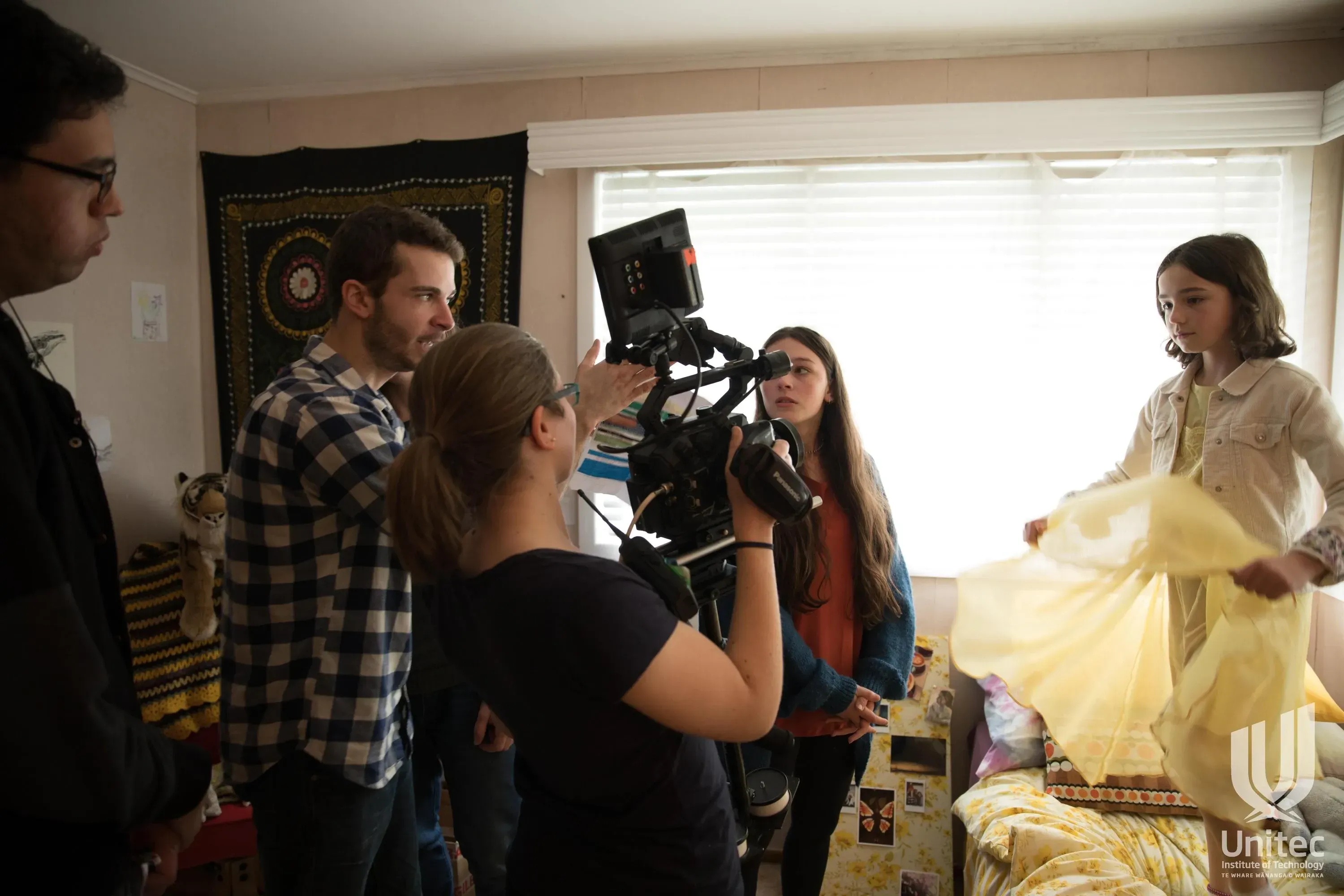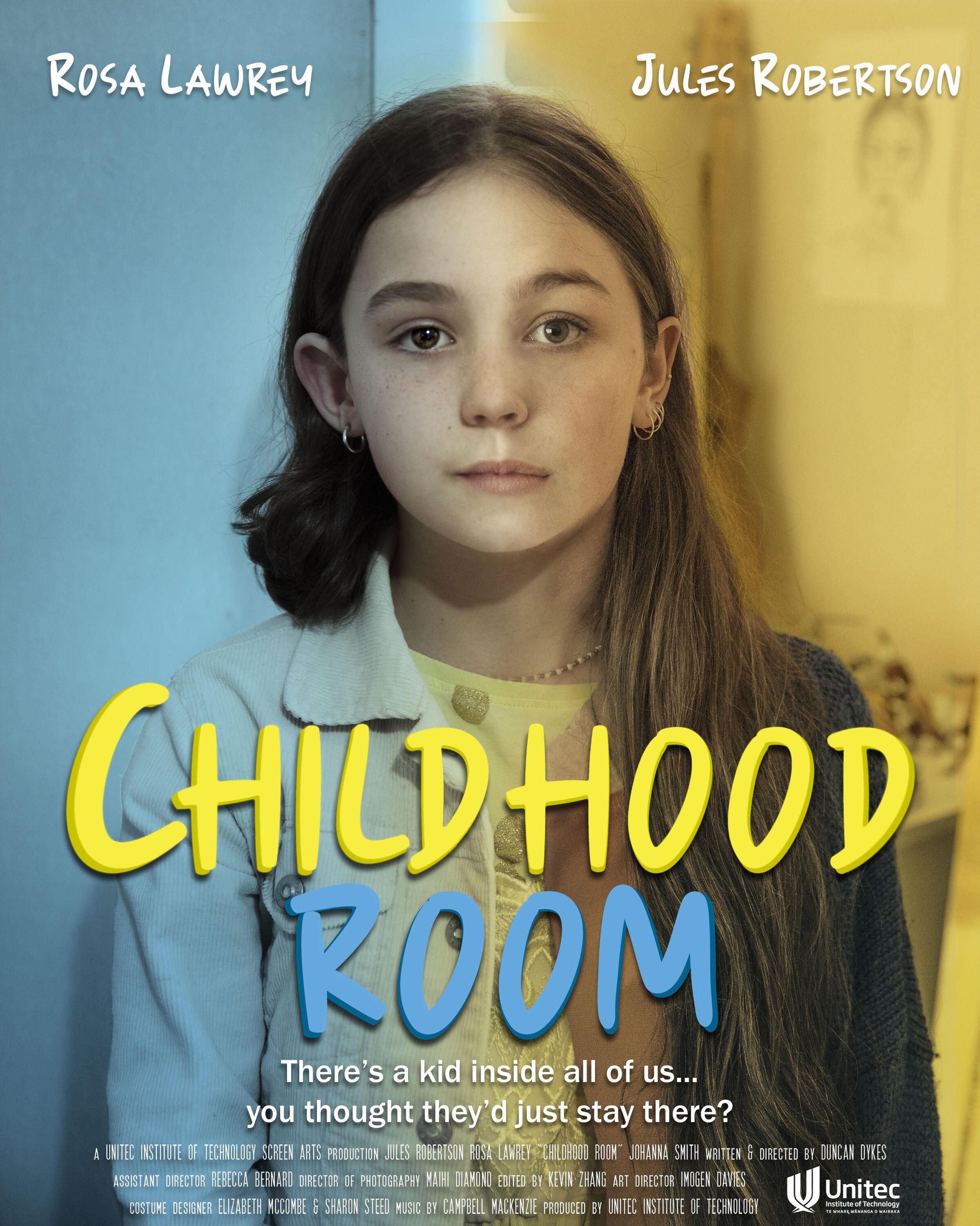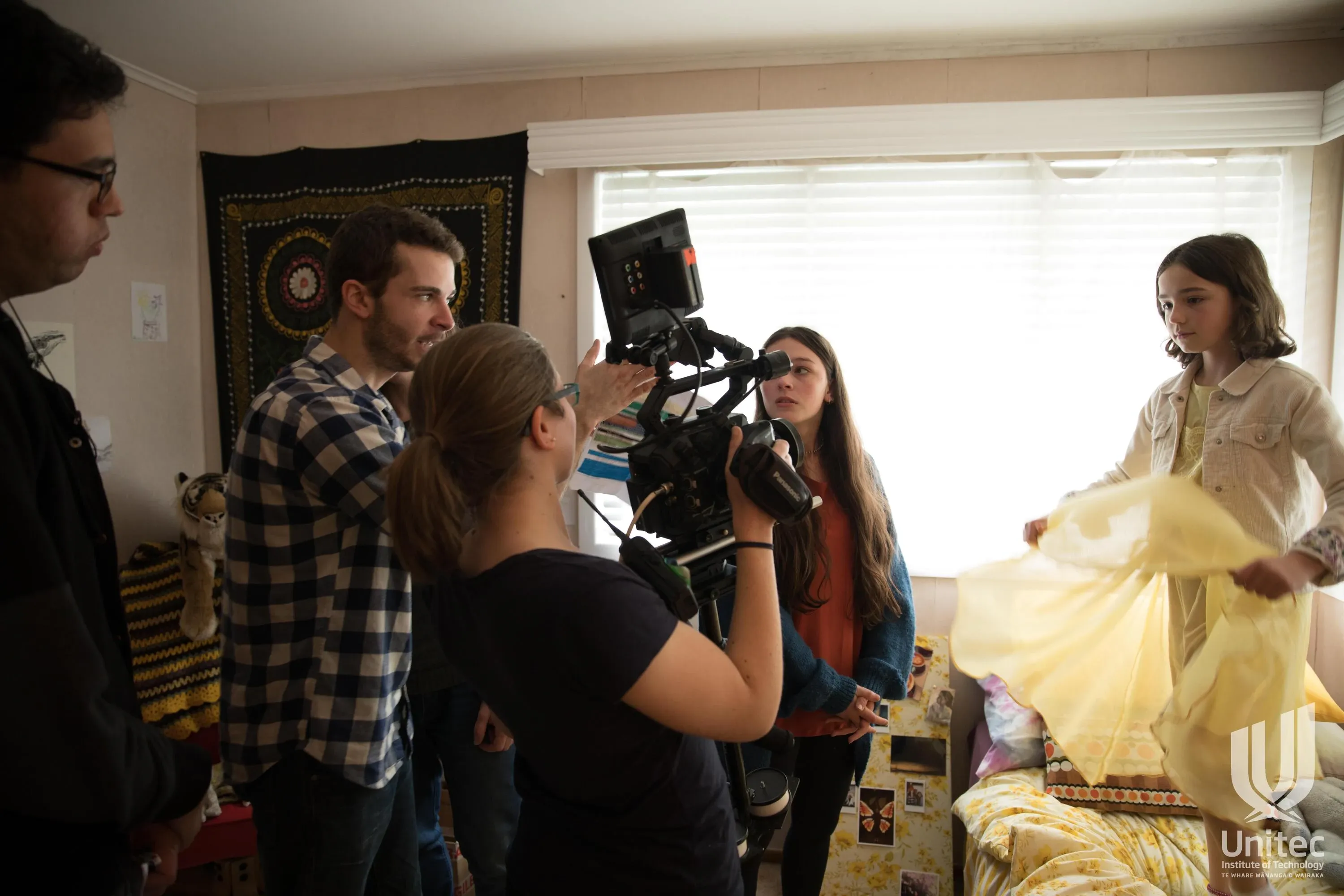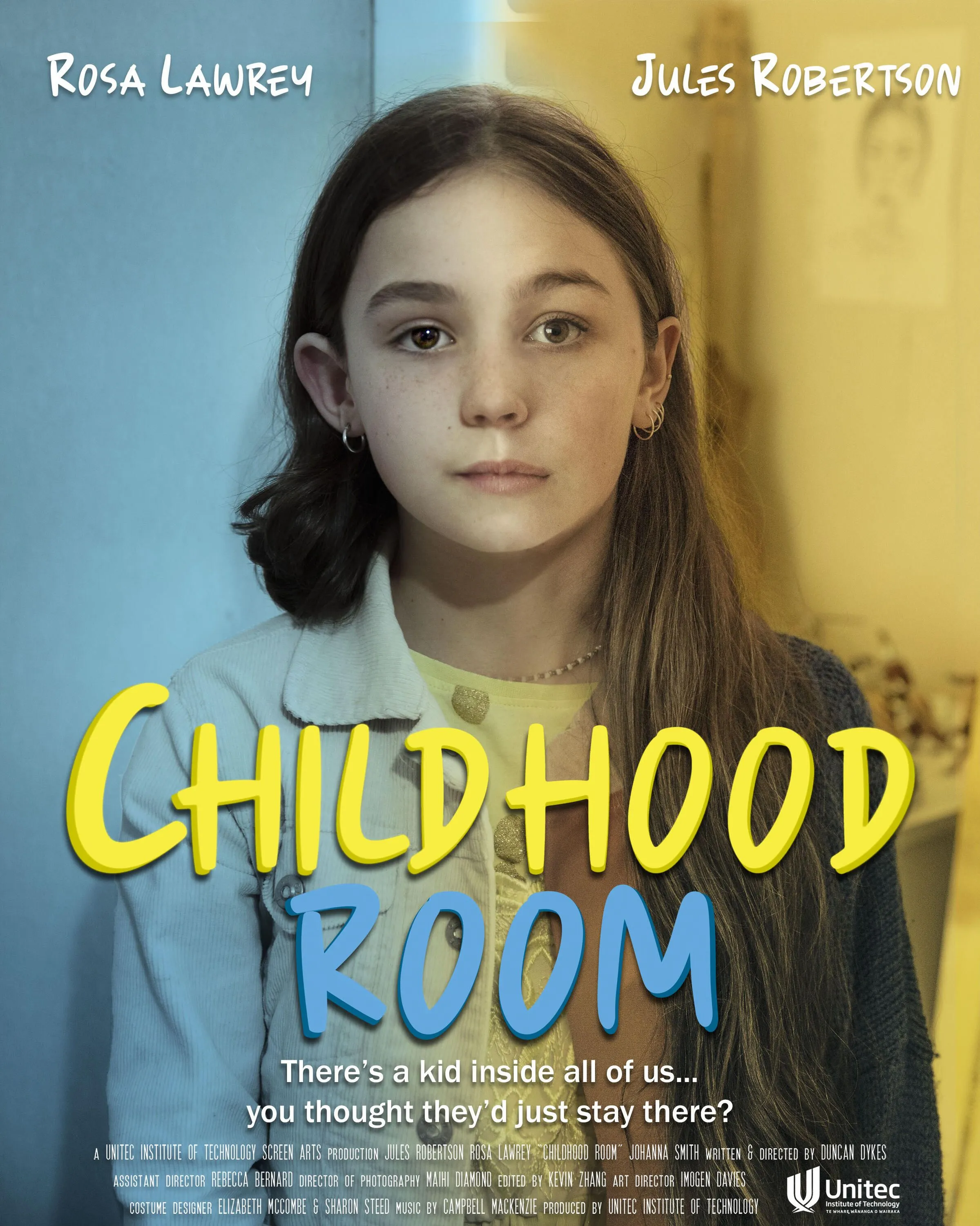Starting Your Big Screen Career
Written by

They come at from different angles but aspiring filmmakers all want to achieve the same thing - to get their work on the big screen.
21-year-old writer/director Duncan Dykes has already done that - while still a student.
The recent Unitec Bachelor Performing and Screen Arts graduate was among the names in lights at this year’s New Zealand International Film Festival (NZIFF) with his short film Childhood Room.
“It was really thrilling, really flattering getting to have that out in the world and having people see it, validate it with criticism or engagement,” Dykes smiles. “It caught me by surprise, getting news that it was going to be viewed by a significant audience.”
The film was his labour of love over a year - from concept to script to finished product.

Poster for Childhood Room.
Getting noticed
Unitec screenwriting lecturer Jo Smith agrees taking a short film from an assignment to sitting along professional filmmakers is an achievement.
“Unitec puts each graduate short film up for selection at local & international festivals. If your film is selected - you get noticed, you get credit, you get a public screening. Once you've been selected for one festival, others will take more notice.”
That’s proven to be the case for many Unitec shorts over the years - with work made as part of the course shown locally through the likes of NZIFF, Show Me Shorts and Doc Edge and at international Festivals like Toronto, Cannes, Hong Kong and more.
Dykes credits Unitec’s supportive approach for Childroom Room’s progression. “For the first year after we produce them, Unitec is the project’s executive producer. They shop it around festivals - they front the bill and do the organising, it can be quite an expensive process to apply around the world.”
A career in film has been Dykes’s goal for as long as he can remember. He chose Unitec because its hand-on nature felt like “an industry preparation course rather than just going to uni, ticking boxes and getting the paper (degree).”

Duncan Dykes directing on set of Childhood Room. Photo: Supplied.
Joining the community
But real-world skills and a qualification weren’t all Dykes came away with.
“Whether or not you find work is largely driven by connections. I’ve found Unitec creates this ecosystem where there are lots of different people trying to break into the industry at the same time, so if you make friends with actors, writers and everybody then it puts you in a good position moving forward.
“For a year after you graduate, you can still book out equipment from Unitec - it fosters the environment and the resources to build communities and projects from the ground up.”

Duncan Dykes working with cast and crew on Childhood Room. Photo: Supplied.
“We’re the only undergraduate degree that does the full ‘script to screen’ experience as part of the course,” Smith explains. “Our projects are fully collaborative. How can you ever learn a better way? It’s gold as far as I'm concerned.”
Smith, who has extensive experience inside the film industry, sees a bright future for Dykes.
“Duncan has a wicked sense of humour but he’s also got an incredible work ethic. He’s whip-smart, he’s really finding his voice as a creative.”
While being a writer/director is still the plan, Dykes is glad to have garnered a broader skill set in his studies to help him work his way up.
“I don’t think there are any Netflix productions that are saying ‘we want some first time, fresh out of university directors to throw a budget behind,” Dykes laughs.
Written in partnership with Unitec. To find out more about the Screen Arts programme, click here.

